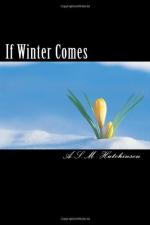But Twyning continued to stand by the chair and to breathe through his nose. He was reading over Sabre’s shoulder.
The few pages of “England” already written lay in front of Sabre’s pad, the first page uppermost. Twyning read and interjected a snort into his nasal rhythm.
“Well, that book’s not written for me, anyway,” he remarked.
Sabre agreed shortly. “It isn’t. But why not?”
Twyning read aloud the first words. “’This England you live in is yours.’ Well, I take my oath it isn’t mine. Not a blooming inch of it. D’you know what’s happening to me? I’m being turned out of my house. The lease is out and the whole damned house and everything I’ve put on to it goes to one of these lordlings—this Lord Tybar—just because one of his ancestors, who’d never even dreamt of the house, pinched the land it stands on from the public common and started to pocket ground rent. Now I’m being pitched into the street to let Lord Tybar have a house that’s no more his than the man in the moon’s. D’you call that right?”
“No, I don’t,” said Sabre, but with a tinge of impatience. “I call it rotten.”
Twyning seemed surprised. “Do you, though? Well, how about that book? I mean to say—”
“I shall say so in the book. Or as good as say so.”
Twyning pondered. “Shall you, by Jove? Well, but I say, that’s liberalism, radicalism, you know. That’s not the sort of pap for kids.”
“Well, the book isn’t going to be pap for kids.”
Twyning snorted a note of laughter through his nose. “Sorry, old man. Don’t get shirty. But I say though, seriously, we can’t put out that sort of stuff, you know. Radicalism. Not with our connection. I mean to say—”
Sabre gathered up the papers and dropped them into a drawer. “Look here, Twyning, suppose you wait till the book’s written before you criticise it. How about that for an idea?”
“All right, all right, old man. I’m not criticising. What’s it going to be called?”
“England.”
Silence.
Sabre, appreciating, with the author’s intense suspicion for his child, something in the silence, looked up at Twyning. “Anything wrong about that? ‘England.’ You read the first sentence?”
Twyning said slowly, “Yes, I know I did. I thought of it then.”
“Thought of what?”
“Well—’England’—’this England.’ I mean to say—What about Scotland?”
“Well, what about Scotland?”
Twyning seemed really concerned. The puckers on his face had visibly deepened. He used a stubborn tone. “Well, you know what people are. You know how damned touchy those Scotchmen are. I mean to say, if we put out a book like that, the Scotch—”
Sabre smote the desk. This kind of thing from Twyning made him furious, and he particularly was not in the mood for it this morning. He struck his hand down on the desk: “Well, damn the Scotch. What’s it got to do with the Scotch? This book isn’t about Scotland. It’s about England. England. I’ll tell you another thing. You say if ‘we’ put out a book like that. It isn’t ‘we.’ Excuse me saying so, but it certainly isn’t you. It’s I.” He stopped, and then laughed. “Sorry, Twyning.”




